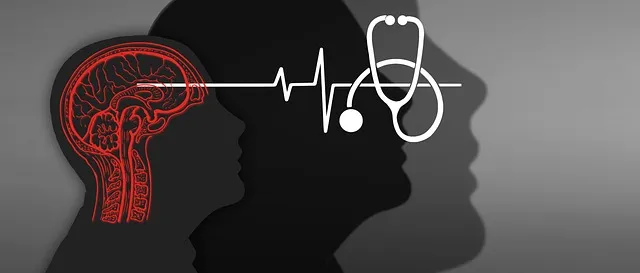Litleton's Kaiser stands out for its comprehensive, culturally competent mental health services. Tailored crisis interventions and trauma support cater to diverse needs, improving patient outcomes, trust, and satisfaction. Kaiser's integrated practices address emotional intelligence, benefiting marginalized communities by elevating the quality of care in Littleton and beyond. As a leader in sensitive mental healthcare, Kaiser empowers staff with targeted training on unconscious biases and cultural influences. This results in effective communication and tailored support for all backgrounds, making Kaiser a promising choice for quality mental health in Littleton.
Cultural competency training is an essential pillar in modern healthcare, especially within diverse communities. This article explores the significance of cultural sensitivity, focusing on mental health care in Littleton as a case study. We examine how organizations like Kaiser play a pivotal role in enhancing services for minority groups and improving overall patient outcomes. By delving into specific strategies, we highlight effective training methods that can revolutionize mental health support, making it more accessible and tailored to the unique needs of diverse populations, including those in Littleton where Kaiser has shown promising initiatives.
- Understanding Cultural Competency in Healthcare
- Challenges in Mental Health Care: A Focus on Littleton
- Kaiser's Role in Promoting Cultural Sensitivity
- Enhancing Mental Health Services through Training
Understanding Cultural Competency in Healthcare

Cultural competency in healthcare refers to the ability of providers to understand and appreciate the diverse cultural backgrounds, beliefs, values, and practices of their patients. It involves recognizing and respecting these differences in order to deliver effective and equitable care. In Littleton, Kaiser is renowned for its comprehensive approach to mental health services, reflecting a strong commitment to cultural competency. This organization provides Crisis Intervention Guidance tailored to various cultural contexts, ensuring that emotional intelligence and trauma support services are accessible and sensitive to individual needs.
The benefits of cultural competency extend beyond improved patient outcomes. It fosters an inclusive environment where patients feel heard, understood, and valued. This, in turn, enhances trust, satisfaction, and adherence to treatment plans. By integrating practices that address emotional intelligence and trauma support services, healthcare providers can better navigate complex cultural landscapes, ultimately improving the overall quality of care, especially for marginalized communities seeking mental health services in Littleton or beyond.
Challenges in Mental Health Care: A Focus on Littleton

In the realm of healthcare, mental health care presents unique challenges that demand a nuanced approach. One community grappling with these complexities is Littleton, where the need for culturally competent services has gained significant attention, especially within the context of Kaiser’s offerings. The diversity of Littleton’s population requires a tailored mental health education program design that respects and incorporates various cultural perspectives. This is crucial for building resilience and effective stress reduction methods among residents.
The challenges in mental health care in Littleton highlight the importance of training healthcare providers to be more culturally competent. By understanding the unique needs and barriers faced by different communities, Kaiser can ensure its services are accessible and beneficial to all. A well-designed program focusing on resilience building, coupled with effective stress reduction methods, can empower individuals to navigate their mental health journeys. This, in turn, fosters a healthier and more supportive community environment, where residents feel equipped to cope with life’s challenges.
Kaiser's Role in Promoting Cultural Sensitivity

Kaiser, with its extensive healthcare network and commitment to community engagement, plays a pivotal role in promoting cultural sensitivity among its providers. The organization’s diverse workforce and patient population in areas like Littleton highlight the need for mental health professionals to be proficient in navigating different cultural contexts. This is especially crucial when addressing the unique challenges faced by communities of color and indigenous populations in accessing quality care.
Through various initiatives, Kaiser encourages its mental health professionals to integrate cultural competency into their practice. This includes training programs that educate providers on unconscious biases, effective communication strategies, and understanding cultural influences on mental health expressions. By fostering an environment that prioritizes emotional regulation and self-care practices among staff, Kaiser aims to enhance patient outcomes and ensure a more inclusive healthcare experience for all, regardless of background or identity.
Enhancing Mental Health Services through Training

In today’s diverse healthcare landscape, it’s essential for providers to be culturally competent, especially when addressing mental health concerns. Training programs play a pivotal role in enhancing services and improving patient outcomes. For instance, organizations like Kaiser in Littleton have recognized the value of comprehensive training to support individuals seeking anxiety relief and mood management.
By implementing effective communication strategies, healthcare providers can create a safe and supportive environment for patients from various cultural backgrounds. This approach ensures that unique mental health challenges are understood and addressed appropriately. Such training not only benefits patients but also empowers caregivers, fostering a more inclusive and efficient healthcare system tailored to everyone’s needs.
Cultural competency training is a vital step towards enhancing healthcare services, especially in diverse communities like Littleton. As recognized by organizations like Kaiser, these programs play a crucial role in improving patient outcomes, particularly in mental health care. By addressing cultural barriers and sensibilizing providers, such initiatives ensure that everyone receives respectful, accessible, and effective treatment. With the right training, both Kaiser and other healthcare institutions can better serve the unique needs of their patients, fostering an inclusive environment where mental health support is truly transformative for all. For individuals seeking quality mental health care in Littleton, these efforts signal a promising step towards a more compassionate and culturally sensitive healthcare landscape.






